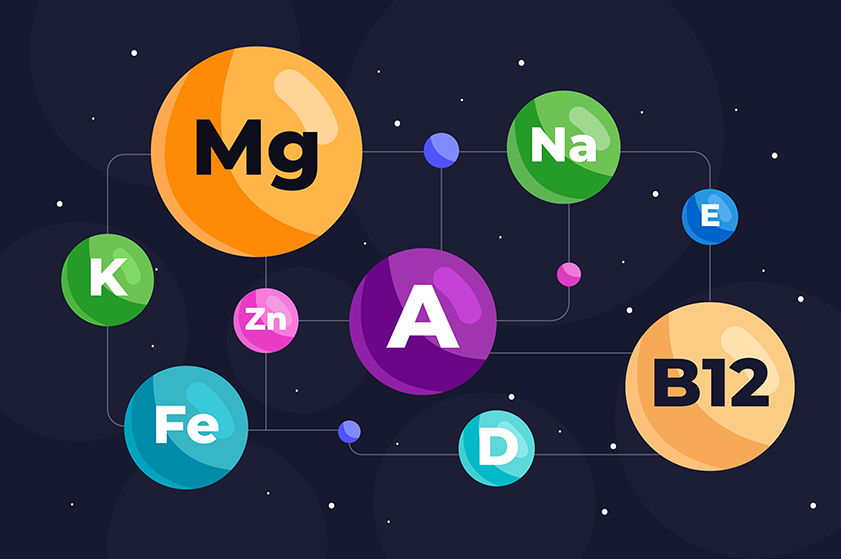Minerals are an important part of our diet as they play a crucial role in maintaining our overall health and well-being. Eating a balanced diet that includes a variety of mineral-rich foods can help ensure that we are getting the necessary nutrients to support our body’s functions and prevent mineral deficiencies.
What Are Minerals?
Minerals are naturally occurring substances found in foods that our bodies cannot produce on their own, so we must obtain them from the foods we eat or through supplements.
Types of minerals:
- Macrominerals
- Trace minerals
Macrominerals, such as calcium, magnesium, potassium, and sodium, are needed in larger amounts and are essential for many bodily functions, including maintaining healthy bones and teeth, regulating blood pressure, and supporting muscle function.
Trace minerals, such as iron, zinc, and copper, are required in smaller amounts but are still important for many bodily functions, including producing energy and supporting the immune system.
Without enough of these essential minerals, our bodies may experience deficiencies and become more susceptible to various health problems, such as weak bones, anemia, and a weakened immune system.
Mineral Sources & Recommended Intake
There are many mineral sources available in our daily diet. Here are some sources of minerals and their recommended daily intake:
- Calcium
Sources: Dairy products like milk, cheese, and yogurt, leafy greens, and fortified foods like cereals.
Recommended Daily Intake: 1000-1300 mg for adults.
- Iron
Sources: Red meat, poultry, fish, beans, and leafy greens.
Recommended Daily Intake: 8 mg for adult men and 18 mg for adult women.
- Potassium
Sources: Fruits, vegetables like bananas, potatoes, and beans, dairy products.
Recommended Daily Intake: 2,500-3,000 mg for adults.
- Magnesium
Sources: Whole grains, nuts, seeds, and leafy greens.
Recommended Daily Intake: 400-420 mg for adult men and 310-320 mg for adult women.
- Zinc
Sources: Meat, seafood, beans, nuts, and whole grains.
Recommended Daily Intake: 11 mg for men and 8 mg for women.
- Sodium
Sources: Processed foods, table salt, and snacks.
Recommended Daily Intake: 1,500-2,300 mg per day for adults.
- Phosphorus
Sources: Meat, poultry, fish, beans, and seeds.
Recommended Daily Intake: 700 mg for adults.
- Copper
Sources: Nuts, seeds, shellfish, and liver.
Recommended Daily Intake: 0.9 mg for adults.
- Selenium
Sources: Seafood, poultry, and eggs.
Recommended Daily Intake: 55 mcg per day for adults.
Food Rich In Minerals
Are you feeling a little mineral-deficient lately? Fear not! Here are 15 foods that are sure to give you a boost:
- Spinach: Popeye knew what was up – this leafy green is bursting with iron.
- Almonds: Not only are they a great source of calcium, but they’re also pretty darn tasty.
- Avocado: This creamy fruit is a great source of copper – just the thing to keep your energy flowing.
- Salmon: Rich in selenium, this fatty fish is a delicious way to get your minerals.
- Dark chocolate: Yes, you read that right. Satisfy your sweet tooth and get a dose of magnesium at the same time.
Bottomline
It is essential to have a well-balanced diet containing all the above minerals for maintaining optimum health. However, the recommended daily intake varies according to age, gender, and health status. It is always better to consult a doctor or a registered dietitian for personalized recommendations.







